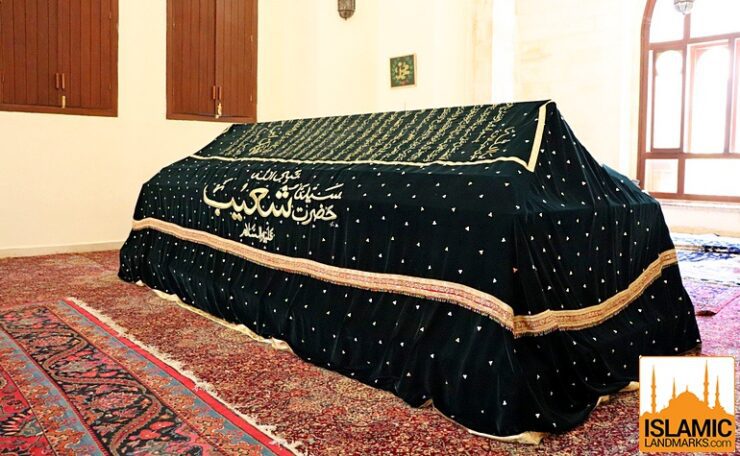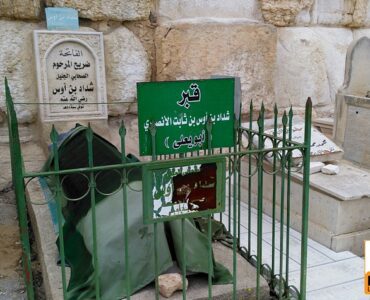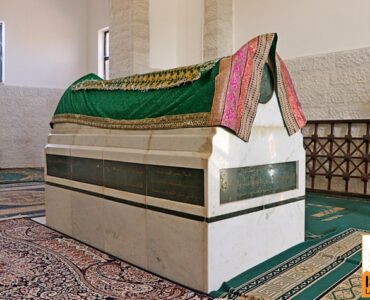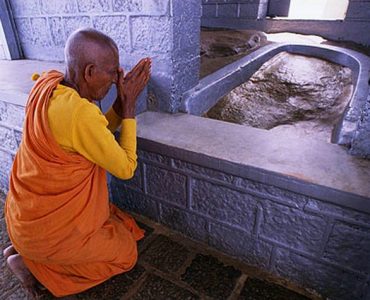This is the maqam/shrine of the Prophet Shoayb (عليه السلام). He is regarded as being the father-in-law of Prophet Musa (عليه السلام) and was sent to the people of Madyan, a community of merchants who controlled the great trade routes between Yemen and Syria, and between Iraq and Egypt on the shores of the Red Sea.
- Shoayb (عليه السلام) is mentioned in the Holy Quran 11 times, he is known as Jethro in the Bible. The people of Madyan were originally true followers of Ebrahim (عليه السلام) but gradually over the centuries had become involved in disobedience and sin. In particular they were involved in:
1. Idol worship and polytheist customs
2. Cheating when giving measure but claiming in full or more than entitled
3. Falsehood in all matters and robbing people - Allah (ﷻ) makes mention in the Holy Quran in Surah Al-A’raf: “And to Madyan (We sent) their brother Shoayb. He said, ‘My people, serve God: you have no god other than Him. A clear sign has come to you from your Lord. Give full measure and weight and do not undervalue people’s goods; do not cause corruption in the land after it has been set in order: this is better for you, if you are believers’.“ [7:85]
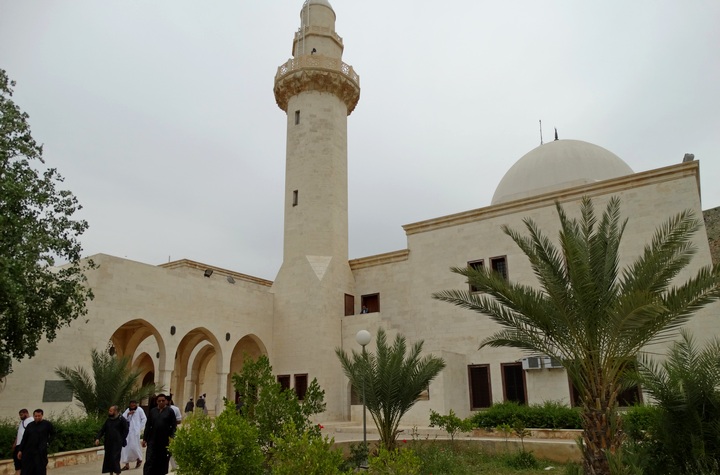

- Shoayb (عليه السلام) was very upset on seeing his people practice bad deeds. He advised them to seek forgiveness of Allah. Alas, they desisted and were destroyed by an earthquake.
- Shoayb (عليه السلام) was renowned for his eloquence and good speech. According to Ibn Abbas (رضي الله عنه), whenever the Prophet (ﷺ) mentioned him, he said, “he was the orator of the Prophets”.
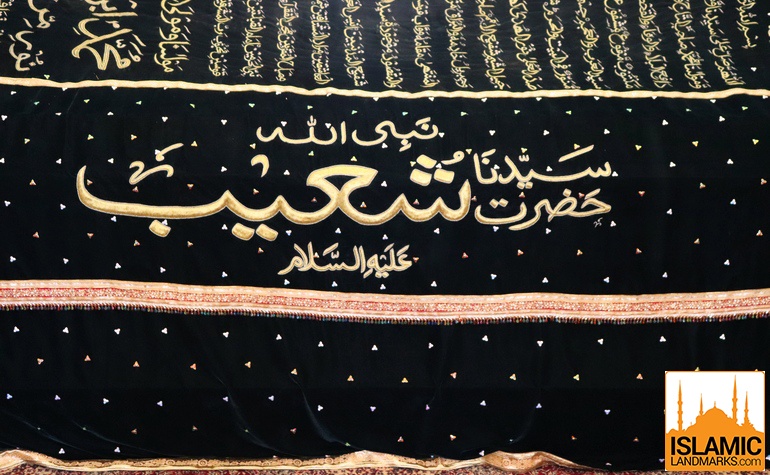

- Shoayb (عليه السلام) was ethnically an Arab. In a hadith narrated by Abu Zarr (رضي الله عنه) it is stated, “Four are from the Arabs. Hud, Salih, Shoayb and your Prophet, O Abu Zarr!”.
- The tomb of Shoayb (عليه السلام) is also claimed to be in Hadramawt, Yemen.
References: Stories of the Prophets – Ibn Kathir, Atlas of the Quran – Dr. Shauqi Abu Khalili
Note that this entry has been shown for information purposes only. On no account should anybody pray to a grave or seek supplication through them as this is tantamount to committing shirk, associating partners with Allah (ﷻ)

